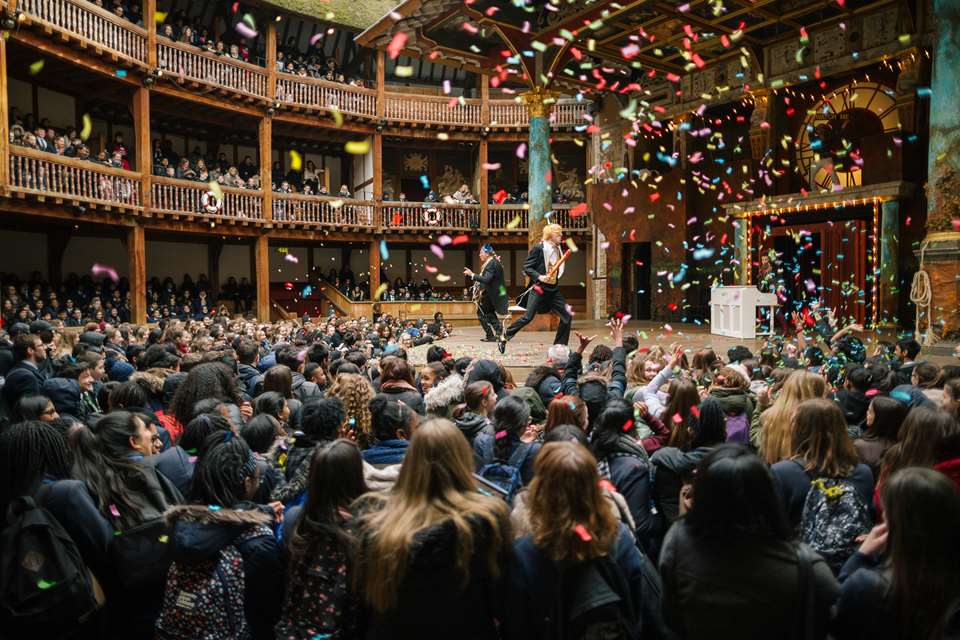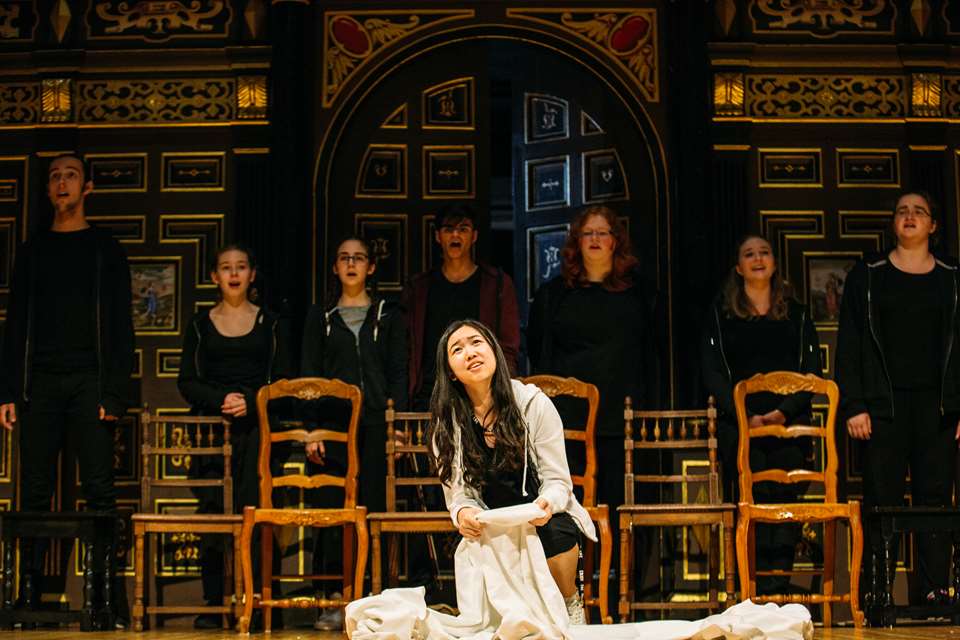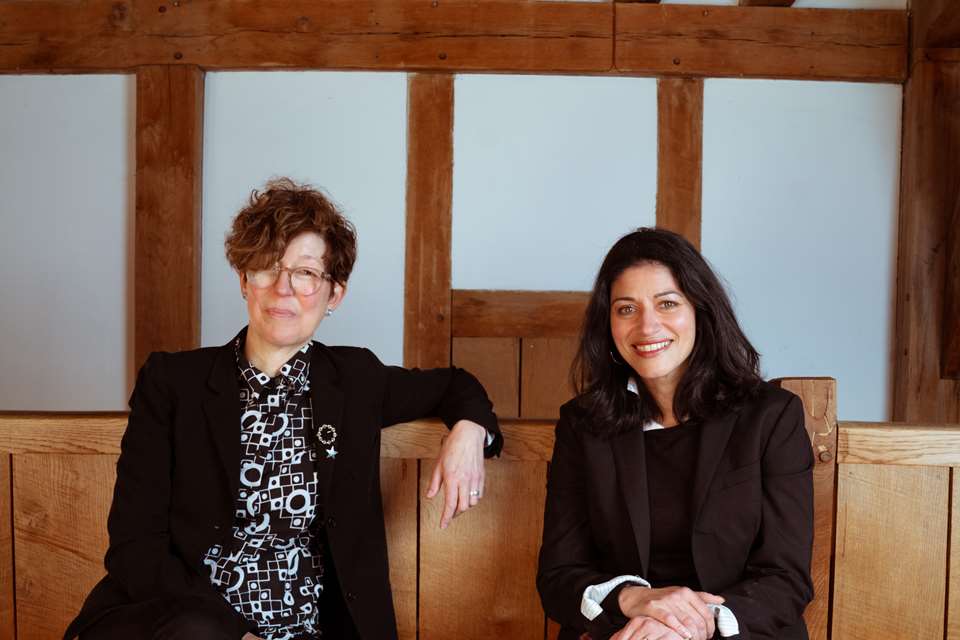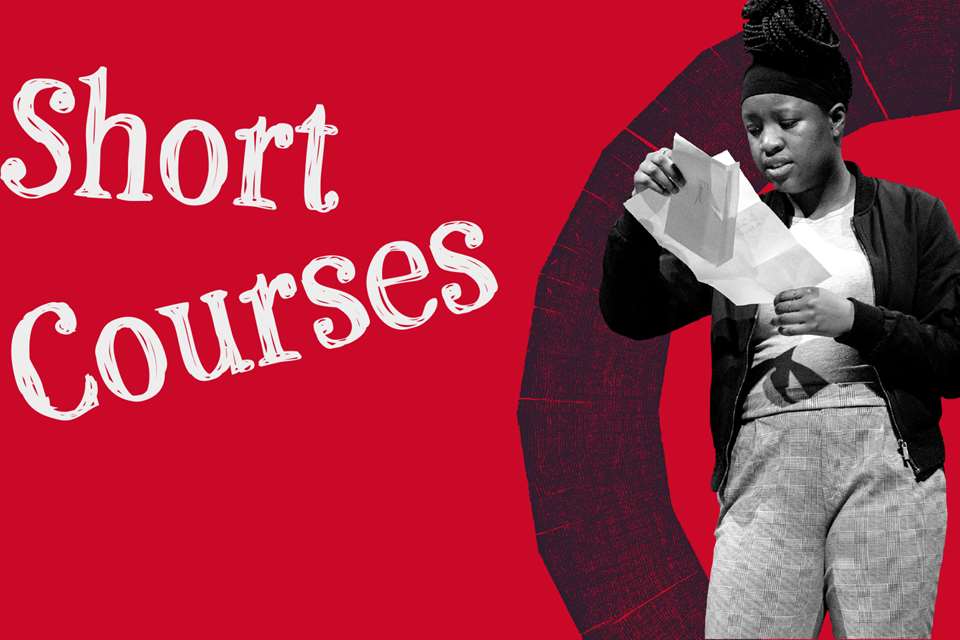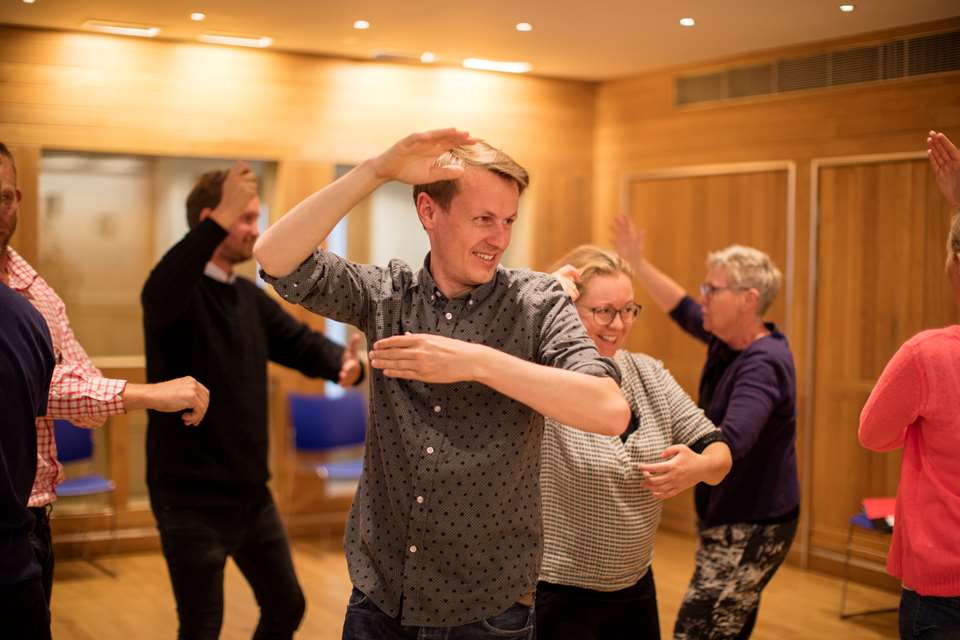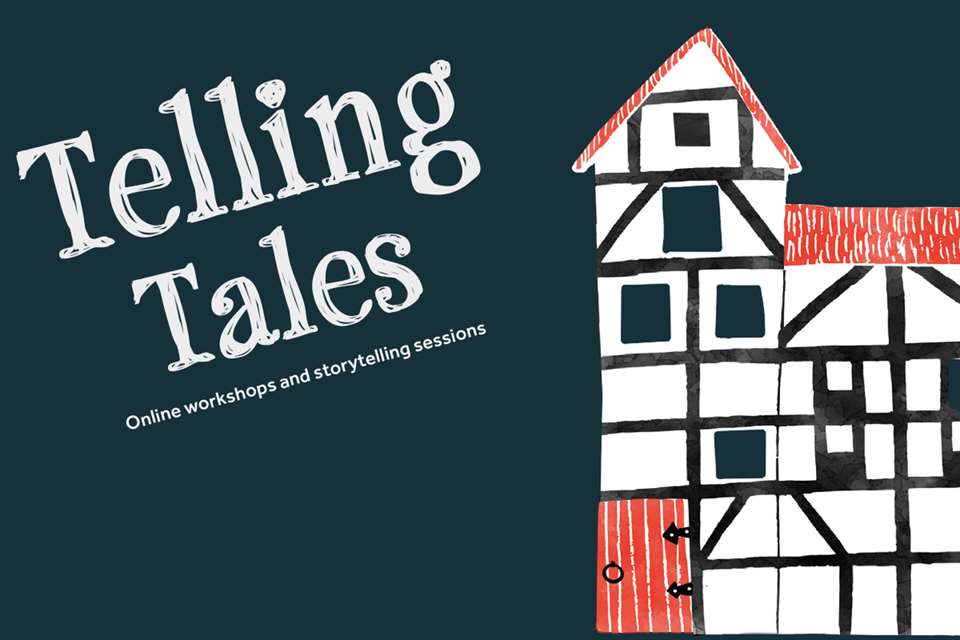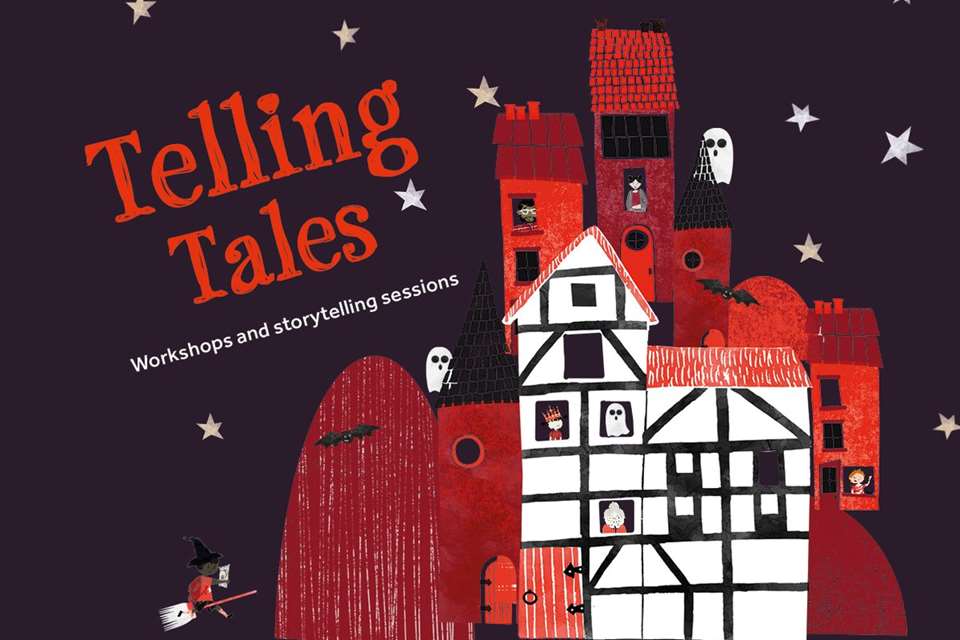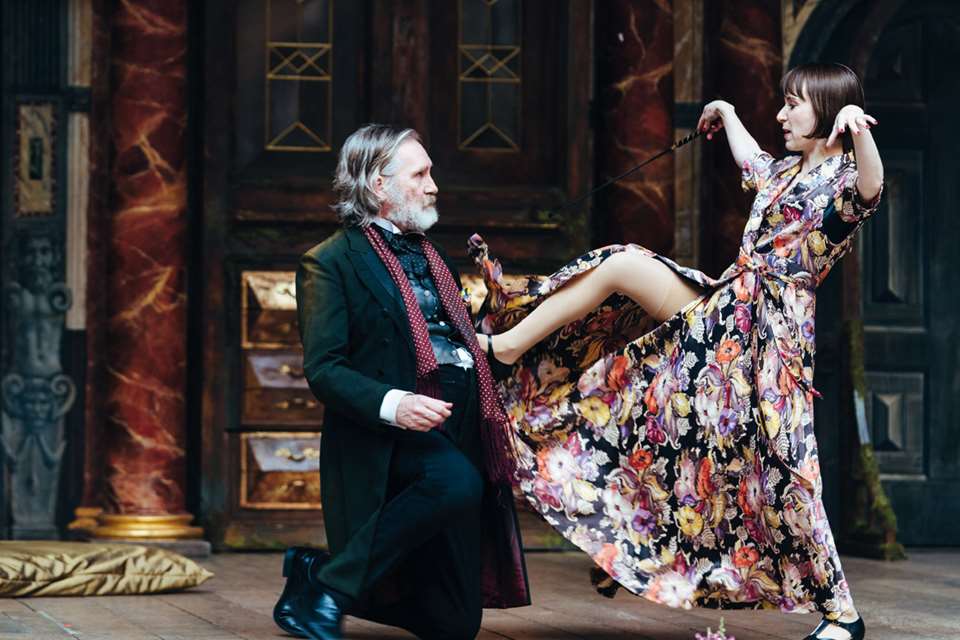Be not afraid of greatness: Lucy Cuthbertson at Shakespeare's Globe
Susan Elkin
Wednesday, December 1, 2021
The pandemic has caused a bumpy start for Lucy Cuthbertson since becoming co-director of education at Shakespeare's Globe, but with things getting back on track, Susan Elkin speaks to her about upcoming projects for primary students
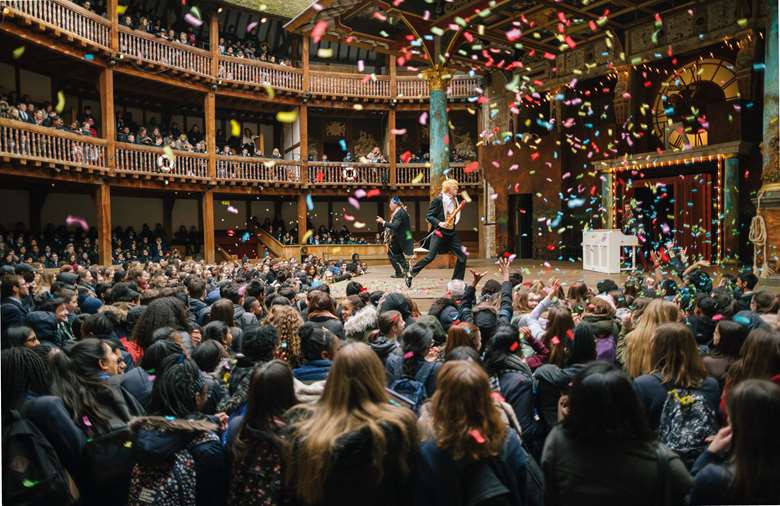
CESARE DE GIGLIO
It's intensely powerful to be part of an audience. The sharing is very exhilarating’ says Lucy Cuthbertson, co-director of education at Shakespeare's Globe, spelling out why it's so important for children to experience live theatre. ‘We're dealing with a generation of children who have a huge amount of screen time. That's their life but it's mostly solitary. Theatre is completely different because you're engaged with other people and you come out buzzing, on a high.’
Storytelling
A key part of theatre is storytelling. That's why Cuthbertson and her colleagues run storytelling events each half term, distilling a play down to its core message with one or two actors. ‘Our Romeo and Juliet, for example, is told by Friar Lawrence, and the audience is involved in lots of what-ifs as we try to de-romanticise suicide and recognise that Romeo and Juliet were just stuck. Let's think about what else they could have done?’ says Cuthbertson, adding that the aim of this is to give the 5- to 12-year-olds (and everyone who comes along with them) ‘agency and ownership of the play with real input.’
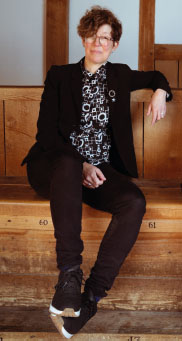 © HELEN MURRAY
© HELEN MURRAY
Lucy Cuthbertson in Shakespeare's Globe
She chuckles about the recent two-handed Hamlet, admitting that they got half-way through the rehearsal period, a bit uneasy, before they realised that the whole play is about the value of storytelling – an idea to focus on. It really worked well to get three children from the audience to be the players, commissioned by Hamlet to startle his stepfather/uncle. ‘You also need to get down to basics. It's about someone who is sad because his dad has died – everyone can relate to that. And then, children think it's really terrible, but – yuk – his mother marries his uncle!’
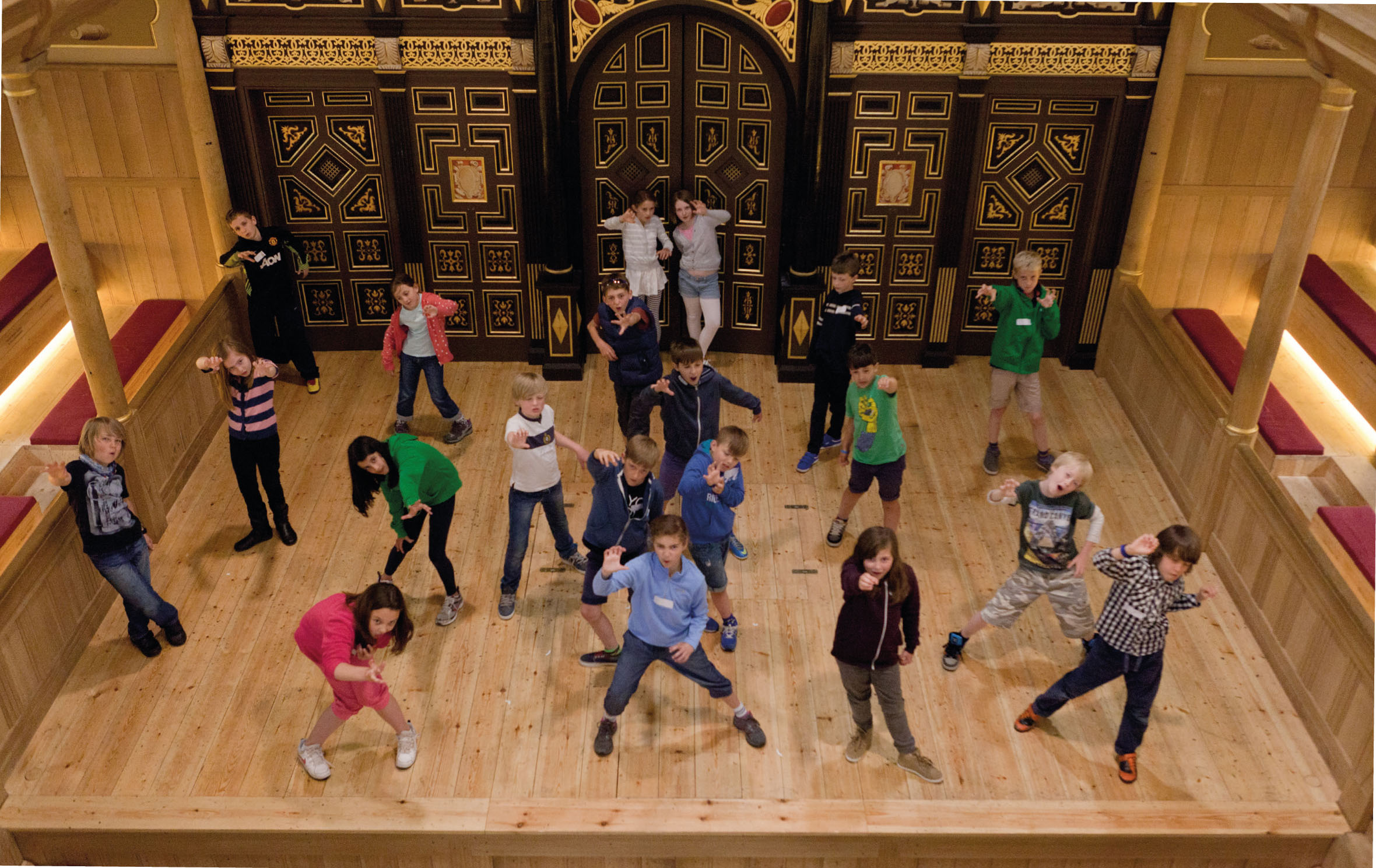
A Lively Action workshop, Shakespeare's Globe, 2014
Adapting and overcoming
A former teacher, Cuthbertson has been in post at Shakespeare's Globe for two years. ‘Most of it, so far, has been in the pandemic’ she says ruefully. One of the successful projects she inherited is Playing Shakespeare with Deutsche Bank – an annual production each spring which gives 20,000 free tickets to maintained sector schools in London and Birmingham. It hasn't, of course, been plain sailing under her tenure so far.
Lucy explains: ‘We were half way through the run in March 2020 when the axe fell and we had to stop – although schools had been nervously cancelling before that. In 2021 we were all set to go with A Midsummer Night's Dream but then it became clear that it wasn't going to happen in the spring, so in the end we did thirteen performances in late autumn instead – rising Covid cases and the fuel crisis notwithstanding.’ Deutsche Bank, which has been a very loyal sponsor for many years, agreed to underwrite this. ‘And we are very grateful to them’ says Lucy fervently.
Now, the project is back on its normal track, with Playing Shakespeare with Deutsche Bank: Macbeth coming in March. ‘The turnaround is tight but we'll get there’ Lucy says, telling me that there will be a cast of about 10 and an ‘exciting director’ whom she wasn't at liberty to name when we spoke. ‘Macbeth is a fine play and works well for this. We also felt that, under present circumstances, to encourage teachers to bring groups and families to come it would be a good idea to focus on a play which is so widely taught in schools.’
Furthering its reach
One of the good things to have come out of the pandemic is the development of digital CPD for teachers. ‘Teachers have been starved of professional development for two years so there has been enthusiastic take up for our online offering’ says Cuthbertson, telling me about the popular courses on how to teach Shakespeare through an anti-racist lens, looking at language, character and situation. ‘Students don't just accept unquestioningly any more and teachers need to feel confident in discussing these issues while still loving the plays – which have lasted because they deal with these things which affect every generation.’ Another popular course on women in Shakespeare helps teachers recognise feminist relevance.
‘Of course, we shall go back to on-site CPD eventually’ says Cuthbertson, ‘but I think it will always now be alongside online provision because we've learned such a lot about how useful that is. One of the lovely things about it is that people can and do participate from all over the world!’
The Globe's education department was set up as a key part of what the theatre stands for right from the very beginning even before there was a building, because learning was crucial to founder Sam Wanamaker's vision. Today the department is so busy that it's taken me three weeks to pin Cuthbertson down for a chat – and that can only be a good thing because it means there's a lot going on for children and young people who benefit so much from stories shared in a communal space.


